Ginger also has anti-inflammatory properties that could help alleviate IBDs.
The 12 Best Foods for an Upset Stomach
Almost everyone gets an upset stomach from time to time. Common symptoms include nausea, indigestion, vomiting, bloating, diarrhea or constipation.
There are many potential reasons for an upset stomach, and treatments vary depending on the underlying cause. Thankfully, a variety of foods can settle an upset stomach and help you feel better faster.
Here are the 12 best foods for an upset stomach.
Nausea and vomiting are common symptoms of an upset stomach.
Ginger, a fragrant edible root with bright yellow flesh, is a common natural remedy for these symptoms ( 1 ).
People can enjoy ginger raw, cooked, steeped in hot water, or as a supplement. It is effective in all forms ( 2 ).
It is a common natural remedy for morning sickness, a type of nausea and vomiting that can occur during pregnancy.
A review of 6 studies, including over 500 pregnant people, found that taking 1 gram of ginger daily was associated with 5 times less nausea and vomiting during pregnancy ( 3 ).
Ginger is also helpful for those undergoing chemotherapy or major surgery since these treatments can cause severe nausea and vomiting.
Taking 1 gram of ginger daily before undergoing chemo or surgery can significantly reduce the severity of these symptoms ( 4 , 5 , 6 ).
Some people even use ginger as a natural remedy for motion sickness. It can help reduce the intensity of nausea symptoms and the speed of recovery time ( 7 ).
How this works is not entirely understood, but it’s hypothesized that ginger regulates nervous system signaling in the stomach and speeds up the rate at which the stomach empties, thereby reducing nausea and vomiting ( 7 , 8 ).
Ginger is typically safe, but heartburn, stomach pain, and diarrhea can occur at doses above 5 grams per day ( 9 ).
Summary
Ginger can help reduce nausea and vomiting, especially when associated with pregnancy, surgery, chemotherapy, or motion sickness.
Chamomile, an herbal plant with small white flowers, is a traditional remedy for upset stomachs. People can brew dried chamomile into a tea or take it orally as a supplement.
Historically, people have used chamomile for treating various intestinal troubles, including gas, indigestion, diarrhea, nausea, and vomiting ( 10 ).
Yet despite its widespread use, only a limited number of studies support its effectiveness for digestive complaints.
One small study found that chamomile supplements reduced the severity of vomiting after chemotherapy treatments, but it’s unclear whether it would have the same effects on other types of vomiting ( 10 ).
An animal study found that chamomile extracts relieved diarrhea in mice by reducing intestinal spasms and decreasing the amount of water secreted into the stool. Still, more research is needed to see if this applies to humans ( 11 ).
Chamomile is also commonly used in herbal supplements that relieve indigestion, gas, bloating, and diarrhea, as well as colic in babies ( 12 , 13 , 14 , 15 ).
However, since chamomile is one of many other herbs in these formulas, it’s difficult to know whether the beneficial effects are from chamomile or from a combination of the other herbs.
Although the gut-soothing effects of chamomile are widely recognized, research has not yet shown how it helps to relieve stomach upset.
Summary
Chamomile is a commonly used remedy for stomach and intestinal discomfort, but more research is needed to understand how it works.
For some people, irritable bowel syndrome, or IBS, causes stomach upsets. IBS is a chronic gut disorder that can cause stomach pain, bloating, constipation, and diarrhea.
While IBS can be difficult to manage, studies show that peppermint may help reduce these uncomfortable symptoms.
Taking peppermint oil capsules daily for at least two weeks can significantly reduce stomach pain, gas, and diarrhea in adults with IBS ( 16 , 17 ).
Researchers believe that peppermint oil works by relaxing muscles in the digestive tract, reducing the severity of intestinal spasms that can cause pain and diarrhea ( 18 , 19 ).
While the research is promising, additional studies must determine whether peppermint leaf or peppermint tea has the same therapeutic effects ( 18 ).
Peppermint is safe for most people, but caution is advised for those with severe reflux, Hiatal hernias, kidney stones or liver, and gallbladder disorders, as it may worsen these conditions ( 18 ).
Summary
Peppermint, especially when consumed as peppermint oil, may help reduce stomach pain, bloating, gas and diarrhea for those with irritable bowel syndrome.
What are the best foods for an upset stomach?
Most people will experience an upset stomach at some time in their life. There are many potential causes of an upset stomach.
Short-term, or acute, causes of an upset stomach include food poisoning and viral gastroenteritis. The symptoms of acute stomach upset typically involve nausea, vomiting, or diarrhea.
Longer-term, or chronic, causes of stomach upset may include irritable bowel syndrome and inflammatory bowel diseases (IBD). Symptoms may include diarrhea, constipation, gas, or bloating.
Some foods can worsen symptoms of an upset stomach, while others can help alleviate them. Read on to find out what to eat and what to avoid when experiencing an upset stomach.
Below are some foods and liquids that could help to settle an upset stomach, or prevent further complications.
Fluids

A person can lose a lot of fluids through diarrhea or vomiting. They will need to replenish lost fluids and electrolytes to prevent dehydration.
Doctors sometimes recommend short-term clear liquid diets to help settle an upset stomach.
Below are some fluids that can help replenish water and electrolytes without causing further upset to the stomach:
- plain water
- clear broths
- diluted fruit juice or squash
- popsicles made from frozen diluted fruit juice
- electrolyte drinks
- weak tea without milk
- herbal teas
- Jell-O
Drinking enough liquids is also essential for someone who has constipation. Fluids help to soften stools, allowing them to pass more easily through the bowels. This helps keep bowel movements regular.
Broths

If a person is unable to eat or keep food down, they may be able to tolerate a simple vegetable or bone broth.
Bone broth contains the amino acid glutamine. A 2017 study notes that glutamine plays a role in maintaining the intestinal barrier (IB). The IB helps to protect the body from harmful pathogens and toxins. It also helps a person to absorb water and nutrients from their food.
According to an older review from 2009 , IB dysfunction is a major contributory factor to the following inflammatory diseases:
Applesauce

Apples contain antioxidants called polyphenols. According to a 2015 review, polyphenols may help alleviate inflammation associated with IBDs. According to the review, dietary polyphenols may help to:
- regulate a person’s immune response, thereby controlling inflammation
- protect the lining of the gut from damage
- improve the gut microbiome, which is the term for the trillions of microorganisms that live inside the digestive tract
Stewed apples or applesauce are easier to digest than the whole fruit.
Bananas

Bananas can help to replenish potassium and other electrolytes that a person may lose as a result of vomiting or diarrhea.
Bananas make up part of the “BRAT” diet, which some people recommend for an upset stomach with diarrhea. The acronym “BRAT” stands for bananas, rice, applesauce, and toast. These bland foods are gentle on the stomach, so they might help prevent further stomach upset.
Ginger

Ginger can help combat feelings of nausea. A person can make ginger tea by slicing or grating fresh ginger and adding hot water. Sipping the mixture may help to settle an upset stomach.
Ginger also has anti-inflammatory properties that could help alleviate IBDs.
A 2019 study investigated the effects of daily ginger supplements on participants with ulcerative colitis, which is a form of IBD. Over 12 weeks, participants with mild to moderate ulcerative colitis received either 2 grams (g) of a ginger supplement per day or a placebo.
Participants who had taken the ginger supplements showed reduced disease activity and increased quality of life, compared with those who took the placebo.
However, the authors note that scientists need to conduct further clinical trials using different dosages and durations of ginger supplementation to confirm the findings.
Linseed for constipation

People who have constipation can try taking linseed oil while increasing their fluid intake. This combination should encourage soft, bulky stools that help keep a person regular.
A person can try sprinkling linseed on their breakfast cereal or adding the seeds to a smoothie.
Try to drink plenty of water while taking linseed, otherwise, stools may become bulky and hard. This might make constipation worse.
Probiotic-rich foods

Probiotics offer health benefits for the digestive system and the immune system. People can take probiotic supplements or eat foods that are naturally rich in probiotics.
A person may want to consume probiotic foods if they have just finished a course of antibiotics, or as an add-on treatment for chronic digestive issues.
Probiotic-rich foods may not suit people who are experiencing an upset stomach with bouts of vomiting and diarrhea. However, after recovering from these issues, a person may want to consume probiotics to replenish their beneficial gut bacteria
Probiotic-rich foods include:
- natural, unsweetened yogurt
- kefir
- sauerkraut
- miso
- tempeh
- kombucha
- kimchi
What to Eat (or Not) When Your Stomach Hurts

When your stomach hurts, cramps, or you feel like you might throw up, the last thing you want to do is eat something that makes it worse. It can be even harder to know what to try if you’ve been vomiting or have diarrhea. But some foods can give you nutrients you need without making you feel worse.
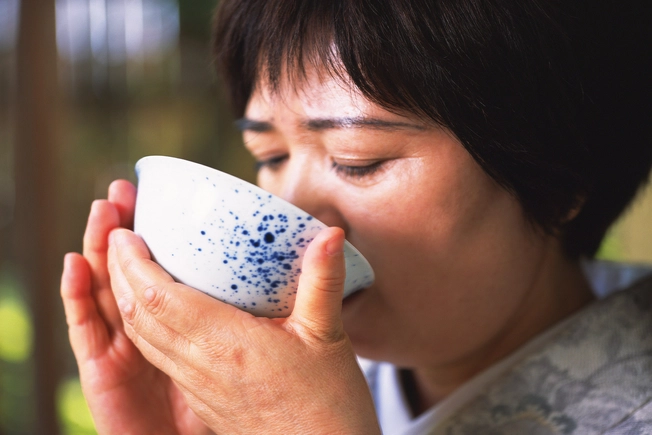
Start With Liquids
2/15
If you can’t keep solid food down, there’s no point in trying to eat. Things like sports drinks, clear broth, or coconut water have minerals you need like potassium, calcium, and sodium (salt).
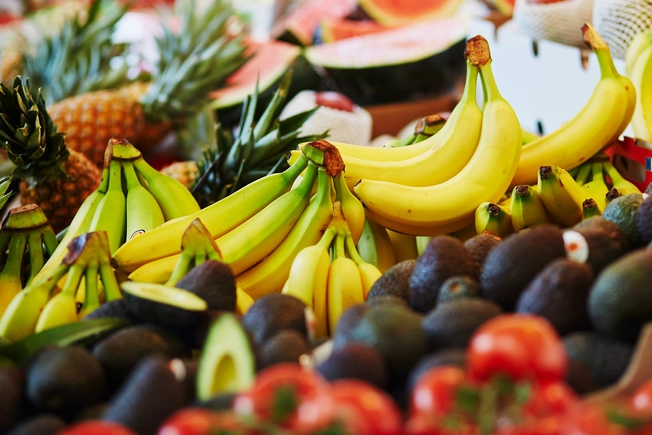
Try: Bananas
3/15
They’re easy to digest and have lots of potassium — an important mineral you may start to lose if you have diarrhea or have been vomiting.
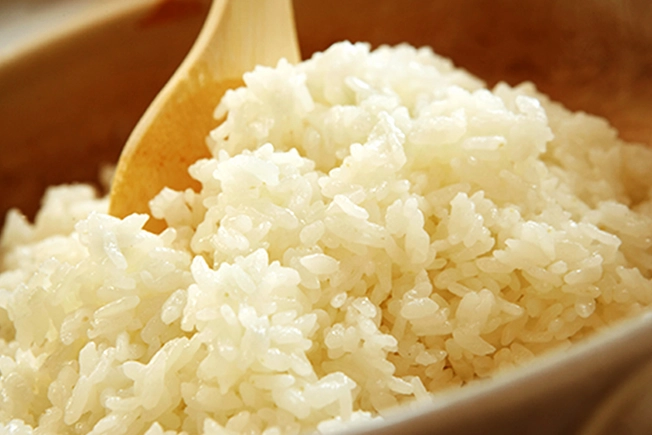
Try: Rice
4/15
Make sure it’s plain white rice. Wild, brown, or black rice — generally healthy — are harder to digest, especially on an upset stomach. Starchy, low-fiber foods like white rice also can help firm up your stool and stop the diarrhea that can come along with stomach trouble.
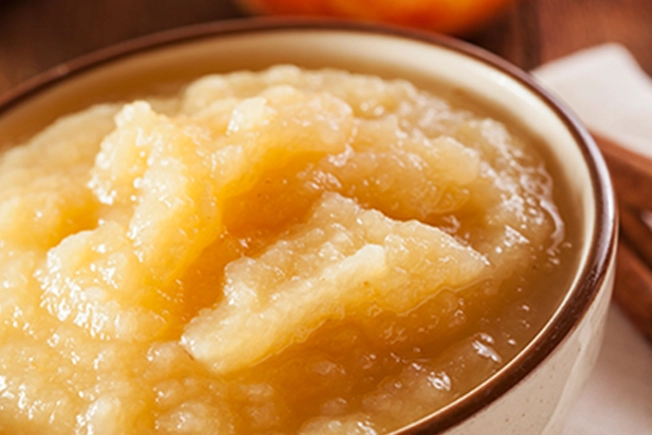
Try: Applesauce
5/15
It’s easy to digest and has plenty of nutrients, including pectin — a kind of fiber that dissolves in water. It can add bulk to your stool and help get rid of your diarrhea.

Try: Toast
6/15
Simple white-bread toast is better than fiber-rich whole grains when you have an upset stomach. Whole grain has a kind of fiber that’s good when you’re not sick, but it can make an unhappy tummy worse, especially if you have diarrhea or nausea.

Next Steps
7/15
If those foods stay down, you can start to branch out to things like baked potatoes and maybe some boneless, skinless chicken breast. Once you’re feeling better and haven’t thrown up or had diarrhea in 24 to 48 hours, you can try to add in some fruits and vegetables.

Don’t Eat: Dairy
8/15
Milk, cheese, and ice cream are all no-no’s with an upset stomach. They’re hard for your body to digest, in part because they’re high in fat. Plain, nonfat yogurt may be OK sometimes, but start with a little and see how it goes.

Don’t Eat: Fried Foods
9/15
These have lots of oil and fat, so they’re harder to digest. Fried foods aren’t great for you even when you’re healthy, but they can make an already upset stomach even worse.

Don’t Drink: Soda
10/15
The bubbles can be a problem because gas gets into your digestive system. And if lots of sugar hits you all at once, it can make diarrhea worse. Small sips of a flat soda may be OK.

Don’t Eat: Spicy Food
11/15
It’s probably the last thing you feel like having with an upset stomach — and there’s a reason for that. Your digestive system may have to work harder to digest it, and that can make your rumbly tummy worse. Stick to the bland stuff until you feel better.
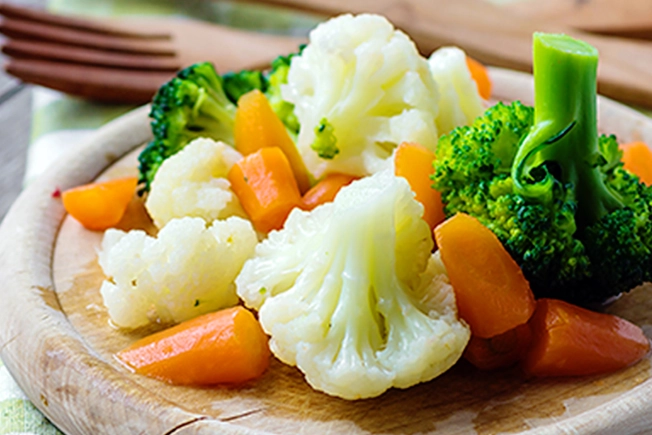
Don’t Eat: Raw Fruits and Vegetables
12/15
They’re great when you’re healthy. But when you have an upset stomach, the fiber in them — which normally makes your poop easy to pass — can make things worse. It’s best to wait until you feel better to add them back into your diet. Start with small portions of cooked vegetables and juices.

Keep Your Belly Happy
13/15
A balanced diet with plenty of fruits and vegetables can help keep your digestive system healthy and your immune system strong and ready to fight off bugs that might upset your stomach. And watch for triggers — anything from foods that have acid like tomatoes, to fizzy drinks, to stress at work.

If You Have Inflammatory Bowel Disease
14/15
Inflammatory bowel disease (IBD) includes Crohn’s disease and ulcerative colitis. These conditions are based in your immune system and involve a lot more than an upset digestive system, though that can be one of the symptoms. Food doesn’t cause IBD, and there’s no single diet that helps everyone with IBD. But it can help to keep a food journal so that you learn what your trigger foods are, then you can avoid them.

When to Call Your Doctor
15/15
Everyone gets an upset stomach from time to time, but talk to your doctor if you’re losing weight without trying, you don’t have much of an appetite, you’re fatigued or have cramping, bleeding, pain, or other symptoms, or it goes on for too long.
Show Sources
IMAGES PROVIDED BY:
- Getty Images
- Thinkstock Photos
- Thinkstock Photos
- Thinkstock Photos
- Thinkstock Photos
- Thinkstock Photos
- Thinkstock Photos
- Thinkstock Photos
- Thinkstock Photos
- Thinkstock Photos
- Thinkstock Photos
- Thinkstock Photos
- Thinkstock Photos
- svetikd /Getty Images
- Getty Images
Cleveland Clinic: “Gastrointestinal Soft Diet Overview.”
Familydoctor.org: “BRAT Diet: Recovering From an Upset Stomach.”
Pancreatic Cancer Action network: “What is diarrhea and when does it occur?”
Mayo Clinic: “Indigestion.”
National Cancer Institute: “What to do when you have loose stools
National Heart Association: “Angina (Chest Pain).”
National Health Service Choices: “Good foods to help your digestion.”
Virginia Tech Schiffert Health Center: “Upset Stomach and
Crohn’s and Colitis Foundation: “Diet, Nutrition, and Inflammatory Bowel Disease.”






